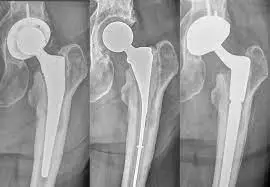- Home
- Medical news & Guidelines
- Anesthesiology
- Cardiology and CTVS
- Critical Care
- Dentistry
- Dermatology
- Diabetes and Endocrinology
- ENT
- Gastroenterology
- Medicine
- Nephrology
- Neurology
- Obstretics-Gynaecology
- Oncology
- Ophthalmology
- Orthopaedics
- Pediatrics-Neonatology
- Psychiatry
- Pulmonology
- Radiology
- Surgery
- Urology
- Laboratory Medicine
- Diet
- Nursing
- Paramedical
- Physiotherapy
- Health news
- Fact Check
- Bone Health Fact Check
- Brain Health Fact Check
- Cancer Related Fact Check
- Child Care Fact Check
- Dental and oral health fact check
- Diabetes and metabolic health fact check
- Diet and Nutrition Fact Check
- Eye and ENT Care Fact Check
- Fitness fact check
- Gut health fact check
- Heart health fact check
- Kidney health fact check
- Medical education fact check
- Men's health fact check
- Respiratory fact check
- Skin and hair care fact check
- Vaccine and Immunization fact check
- Women's health fact check
- AYUSH
- State News
- Andaman and Nicobar Islands
- Andhra Pradesh
- Arunachal Pradesh
- Assam
- Bihar
- Chandigarh
- Chattisgarh
- Dadra and Nagar Haveli
- Daman and Diu
- Delhi
- Goa
- Gujarat
- Haryana
- Himachal Pradesh
- Jammu & Kashmir
- Jharkhand
- Karnataka
- Kerala
- Ladakh
- Lakshadweep
- Madhya Pradesh
- Maharashtra
- Manipur
- Meghalaya
- Mizoram
- Nagaland
- Odisha
- Puducherry
- Punjab
- Rajasthan
- Sikkim
- Tamil Nadu
- Telangana
- Tripura
- Uttar Pradesh
- Uttrakhand
- West Bengal
- Medical Education
- Industry
Preoperative Periprosthetic joint infection linked to higher rates of depression: Study

Patients undergoing 2-stage exchange for Periprosthetic joint infection (PJI) have a four times higher prevalence of preoperative depressive symptoms than patients undergoing aseptic revision, according to a recent study published in the Arthroplasty Today.
Periprosthetic joint infection (PJI) is a devastating complication after total joint arthroplasty. Patients undergoing revision for PJI may experience psychological distress and symptoms of depression, both of which are linked to poor postoperative outcomes. We, therefore, aim to identify the prevalence of depression and depressive symptoms in patients before treatment for PJI and their link to functional outcomes.
Patients undergoing either debridement with implant retention (DAIR) or 2-stage exchange for PJI with minimum 1-year follow-up were retrospectively reviewed. The 2-stage (n = 37) and single-stage (n = 39) patients that met inclusion criteria were matched based off age (±5 years), gender, and body mass index (±5) to patients undergoing aseptic revisions. Outcomes evaluated included a preoperative diagnosis of clinical depression and preoperative and postoperative Veterans RAND 12 Item Health Survey mental component score and physical component score.
Results of the study are:
Compared to matched controls, the prevalence of depressive symptoms was significantly greater in patients undergoing 2-stage exchange preoperatively (40.5% vs 10.8%, P < .01) but not postoperatively (21.6% vs 10.8%, P = .20). Patients undergoing DAIR with either preoperative depressive symptoms (31.3 vs 40.9, P = .05) or a preoperative diagnosis of depression (27.7 vs 43.1, P < .01) had significantly lower physical component scores postoperatively.
Patients undergoing 2-stage exchange for PJI have a four times higher prevalence of preoperative depressive symptoms than patients undergoing aseptic revision. Patients undergoing DAIR with depression or preoperative depressive symptoms have lower functional scores postoperatively. Orthopaedic surgeon screening of PJI patients with referral for treatment of depression may help improve outcomes postoperatively.
This study demonstrates that the prevalence of depressive symptoms is greater than 40% in patients undergoing 2-stage ex- change arthroplasty. In addition, patients undergoing DAIR with preoperative depressive symptoms or a preoperative diagnosis of depression have a significantly lower improvement in post-operative physical function. Prior literature has established that surgical outcome could be further improved if orthopaedic surgeons appropriately screened patients undergoing arthroplasty for depressive symptoms and referred them to appropriate care preoperatively. Thus, the results of this study may help in- crease awareness of the high prevalence of depressive symptoms in patients undergoing revision for PJI and ensure that this modifiable risk factor is addressed. Further study is required to prospectively evaluate the role of depression as a modifiable risk factor in the treatment of PJI to help improve outcomes postoperatively.
Reference:
Increased Prevalence of Depressive Symptoms in Patients Undergoing Revision for Periprosthetic Joint Infection by Vishal Hegde, et al. published in the Arthroplasty Today.
https://www.arthroplastytoday.org/article/S2352-3441(21)00189-8/fulltext
Dr. Shravani Dali has completed her BDS from Pravara institute of medical sciences, loni. Following which she extensively worked in the healthcare sector for 2+ years. She has been actively involved in writing blogs in field of health and wellness. Currently she is pursuing her Masters of public health-health administration from Tata institute of social sciences. She can be contacted at editorial@medicaldialogues.in.
Dr Kamal Kant Kohli-MBBS, DTCD- a chest specialist with more than 30 years of practice and a flair for writing clinical articles, Dr Kamal Kant Kohli joined Medical Dialogues as a Chief Editor of Medical News. Besides writing articles, as an editor, he proofreads and verifies all the medical content published on Medical Dialogues including those coming from journals, studies,medical conferences,guidelines etc. Email: drkohli@medicaldialogues.in. Contact no. 011-43720751


